FAQ
Q19: What industrial field is most attractive for selling?
A: All machines using hydraulic system (oil-based oil) can use this product regardless of industries. Currently our major customer base is in plastic injection molding industry. The industry with the highest oil change cost will need BYJ the most.
Q18: I need the list of advantages of your method in comparison with other existing methods of purifications. Ex: Electrostatic oil cleaning system, Centrifugal Oil Purifier and Vacuum Oil Purifier
A:
1) Electrostatic oil cleaning system: The major difference is that electrostatic oil cleaning system cannot get rid of water in the oil, and the increase water content will affect the filtering capability.
2) Centrifugal Oil Purifier: Please refer to Q16.
3) Vacuum Oil Purifier: mainly used for turbine oil and insulation oil with good dehydration capability but poor filtration accuracy.
Q17: Do you have test certificates of cleaned oil in comparison with new oil?
A: Yes we do. The service provided by CDS Condition Monitoring Service Co., Ltd. Please find the report file below.

Q16: Could you make the comparison of your filtering method and CentrifugalPurification method?
A: 1.First allow me to do a brief introduction for you. Among various oil filters currently on the market, there are mainly two kinds of filtration principles:
1) Deep bed filtration: impurities are filtered through high density gaps between papers in the filter core with the filtration path is as long as 114mm and the filtration accuracy up to 0.1 micron. It is ensured that the filter core will not be clogged with BYJ Precision Oil Filtration System’s preliminary filtering device.
2) Surface filtration: very simple filtration structure — filtering through the gaps formed by impurities accumulated on the filtering mesh.
The principle of Centrifugal Purification is Surface filtration. Due to the different specific gravities of oil and impurities, impurities can be separated from the oil with centrifugal force generated by high-speed rotation.
2.Comparison between centrifugal oil filter and BYJ Precision Oil Filtration System:
|
|
BYJ Depth Precision Oil Filtration System |
Centrifugal |
|
Filter core replacement |
1. Required. 2. Because all filtered substances are attached to the filter core. 3. The replacement can be completed in 5 minutes and the precision filtering can be resumed immediately. |
1. Not required. 2. Must be cleaned and maintained frequently. 3. The maintenance work is somewhat difficult and time consuming.
|
|
In-Line Filtering |
1. Allowed. 2. In-Line filtering enables immediate filtering of impurities and water right upon their generation leading to clean and water-free hydraulic system. |
1. Not allowed. 2. Poor dehydration capability and filtration accuracy. Suitable for offline filtering. |
|
Price |
1. Cheaper than annual oil change cost. 2. The high quality and durability worthy of every penny you spent. 3. Maintenance free thus no derivative cost. |
1. Costly high-speed centrifuge. 2. Maintenance cost. |
Q15: Is it possible to filter syntetic and semi-syntetic oils?
A: The physical filtering mechanism of BYJ Precision Oil Filtration System will only filter out particles and water that are suspended in oil, without decompose materials that are dissolved in the oil. Therefore, Synthetic Lubricant and Semi-synthetic Lubricant are sure applicable.
Q14: Is there any difference between filtering different types of oil?
A: A) If you are referring to “filter effectiveness”: All kinds of oil-based oil filtered by BYJ Precision Oil Filtration System will have the same cleanness.
B) If you are referring to “filtration rate”: The oil with high viscosity will have slower rate.
Q13: Is it possible to filter different types of oil using one filter machine and how to do it?
A: The approach you mentioned is feasible. However, two things must be done before filtering different oils because different oils cannot be mixed together:
1) Replace filter core.
2) Remove the residual oil in the oil filter pipe.
So this approach would probably be a bit more bothersome if you want to filter many different kinds of oil with one oil filter.
Q12: How many liters of oil is one filter able to clean?
A: Take “Hydraulic Oil” for example, if it has been two years without oil change, then during first filtering the first set of filter core can last at least 3~4 months. After the first replacement of filter core, the following filter core can last at least 6 months. Both the quantity of oil that can be filtered by a filter core and the lifetime of a filter core depend on the extent of oil pollution. Thus frequent filtering can prolong the lifetime of filter core and maintain the cleanness of oil.
Q11: Why will oil become acidized to not usable?
A: Pollutants in oil cause chemical reactions when encountering water, thus producing acid and hydrogen peroxide, which would break down and destroy the metal parts along the oil duct, causing erosion and stress cracks. Eventually, it causes mechanical failures. Although some water traces and pollutant particles may already exists in the oil, with the use additives, it can slow down the acidification in oil. BYJ oil filter is capable of removing the two basic elements of contamination -- water and pollutant particulates.
Q10: Water traces that are the result of water condensation due to temperature difference are mixed with lubricating oil under high pressure. The polluted water causes the corrosion and wears on the metal parts along the oil duct, eventually eating into metal surfaces. How to solve this problem?
A: BYJ oil filter can fully absorb all water traces due to temperature difference with the water absorption capacity up to 2% of its volume.
Q9: Those tiny particles and sludge in oil are damage to the oil lubrication, how can I remove them?
A: With continuously BYJ oil filtration system, it can filter out particles under 0.1 microns (volume of red blood cells is 8 micron). BYJ oil filter can continuously filter out and remove dust particles, water traces and other substances that gain entry into the oil duct through air holes. At the same time, the anti-blocking design of BYJ oil filter can ensure their durability.
Q8: Do I have to change my oil immediately when its viscosity is getting lower?
A: Under normal circumstances, oxidation would only occur after long time exposure. As a result of abnormally high temperature and rapid change of temperature, the rate of oxidation is abnormally accelerated. If this happens, dark brown viscous materials that increase the friction and hamper heat transmission would surround the metal surfaces. Furthermore, oxygen enters the machine through air hole in the oil path, which slowly dissolves in oil, reducing the lubrication performance. BYJ oil purification system are able to take out particles, maintains the oil system in a satisfactory viscosity level, so that the oil temperature would not be too high, keeping the performance of lubricating oil in normal range.
Q7: Is there any thing we can do to reduce the high frequency of the failure of aged hydraulic parts?
A: In the past, we had the idea that repair or replacement of failed hydraulic parts was usual, but in fact most of which are avoidable. According to the statistics, more than 90 percent of hydraulic machinery failures are due to oil contamination and oxidation. As long as you keep the oil clean and water-free, aged hydraulic system can do well as new one!
Q6: The company that does the machine repairs for hydraulic machinery failures usually proposes oil change as a solution. The question is, how long can we keep the machinery running smoothly with the newly changed oil, and how often do we need to replace the oil again since the last time we changed it so as to keep the hydraulic machinery running smoothly for a period of time?
A: In fact, even after each oil replacement, the oil in the oil reservoir is clean, but that does not mean the oil in the oil duct is clean. As soon as the machinery is restarted after the oil change, those dirty oil in the oil duct returns to the reservoir and mixes up with the clean oil, and pollutant particles continue to cycle through during the machine operation. As a matter of fact, the oil in transmission has never been completely clean. As such, the operation of a conventional hydraulic machine has never been as smooth as you would expect. Increased production costs caused by shutdowns are not only reflected in additional oil costs, it would also cause series of follow-up delays and work stoppages on the production line, so the actual losses from such failures are hard to estimate.
Q5: Why the hydraulic oil needs to be changed so much?
A: The oil after repeated operation of the hydraulic machine would be slowly oxidized and contaminated by pollutants, of which the effects are:
- Oil impurities or sludge (collectively referred to pollutants other than water) would undermine the lubrication effect between two frictional surfaces, so that machine wear would be intensified, leading to malfunctions.
- Water would reduce the resilience of oil film, which is not favorable to the lubrication conditions.
- The combination of water and oil residue would speed up the oxidation of oil.
Therefore, for the hydraulic systems in general, depending on the conditions of machinery and length of working hours, oil contamination would normally degrade oil quality to sub-standard level during a period from six months to two years. As a result, the lubricating oil needs to be changed, and this process is repeated again and again, which is money wasting and time consuming.
Q4: What is the practical effect of mesh oil filter?
A: It was bad. Most of the mechanical equipment uses the traditional metal mesh with diameter about 105 microns or so, which is too big for catching small-size particles below 105 microns. The mesh-type oil filters can only filter out pollutant particles, but not water in oil that could increase its acidity. After using for some time, the machine would have pollutant particles and water element blended into the oil that could increase its turbidity and reduce its viscosity.
Q3: The oil after filtration by BYJ Oil Filter seems real clean, is it true I can use it for ten years long?
A: The study results of hydraulic engineers and machinery manufacturers in various countries all showed that:if lubricating oil is maintained water-free and without impurities, the service life of lubricating oil can be extended 10 times longer, lubricating oil is no longer consumable materials. This has been confirmed in experiments conducted by Japanese hydraulic machinery plants. To maintain the quality of oil in the best conditions, the service life of lubricating oil can be extended for additional 10 years, and the same goes for the hydraulic machinery as well.
Q2: Once the oil in automobile engine becomes black, will its original color be recovered after filtering?
A: The physical filtering mechanism of BYJ oil filter will only filter out impurities and water which are incompatible with oil while the additives of oil will not be filtered, and the oil color change under high temperature will not be recovered.
Q1: Will the filtration took out the additives?
A: In the past, there were worries that the anti-wear, anti-oxidation, and extreme pressure protection additives put into oil could be inadvertently filtered out in the oil purification process, but experiments confirmed that such worries are unnecessary. Additives need to be totally dissolved in the oil rather than suspended substance, in order to produce the expected effect. Particles exist in the liquid form with diameters ranging from 10-8cm to l0-7cm, which cannot be seen from ordinary microscope. Ion molecules are even smaller in diameter, which are totally dissolved in the oily solution when its diameter is under 10-8cm. Therefore, for additives in the solution state, no matter the size of filtering range of oil purification machines, it would not affect the properties of additives. The oil additives simply would not be filtered out nor degraded by the filtration.
As a matter of fact, because the oil filter has the ability to remove microbial substances and wastewater, the service life of oil and oil additives can both benefit with extended service life, and these have been confirmed by various experiments.
Hot Products

Movable Precision Oil Filter Machine MP-...
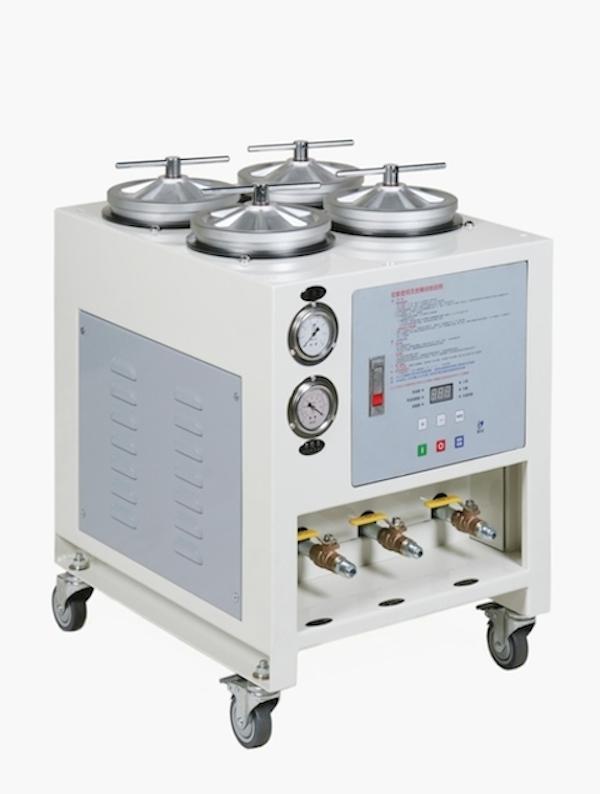
Movable Precision Oil Filter Machine MP-...
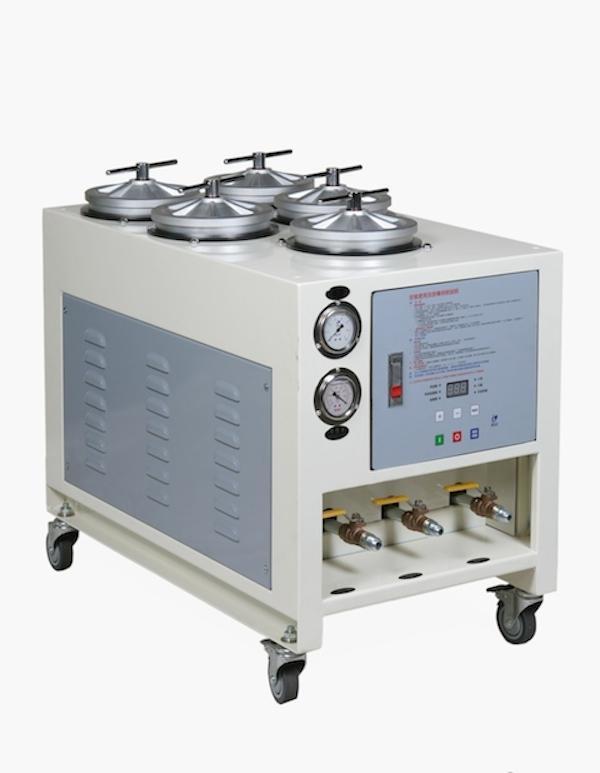
Movable Precision Oil Filter Machine MP-...
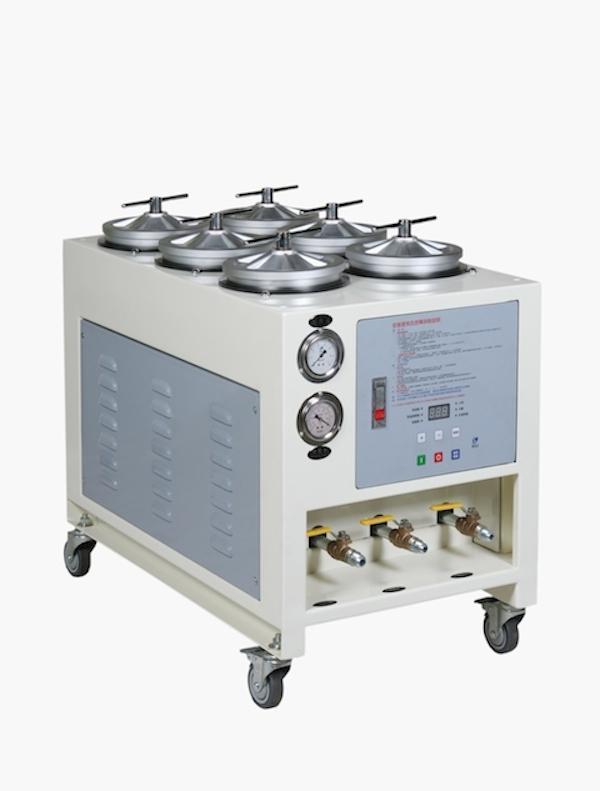
Movable Precision Oil Filter Machine MP-...
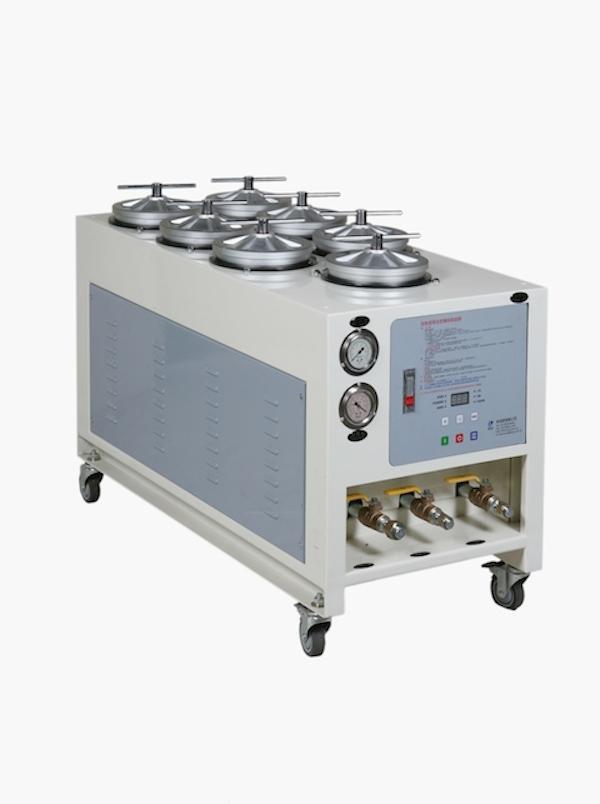
Movable Precision Oil Filter Machine MP-...
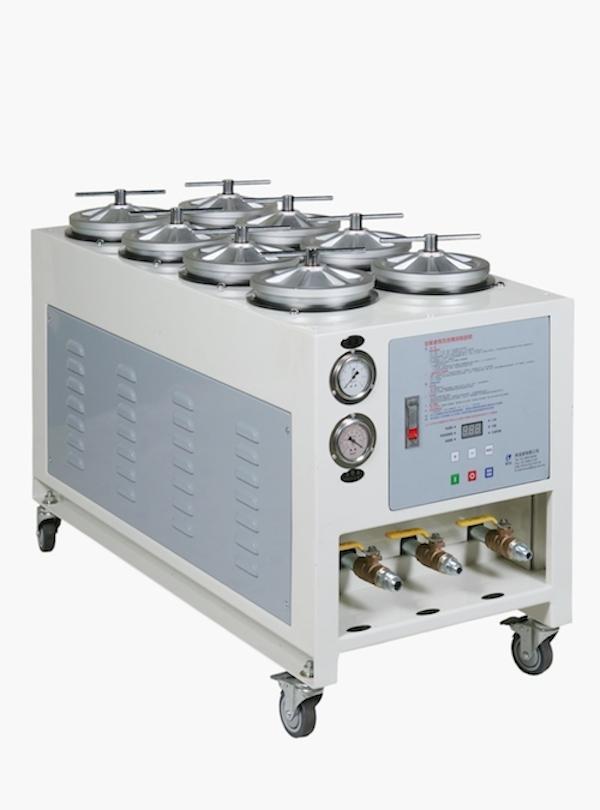
Movable Precision Oil Filter Machine MP-...
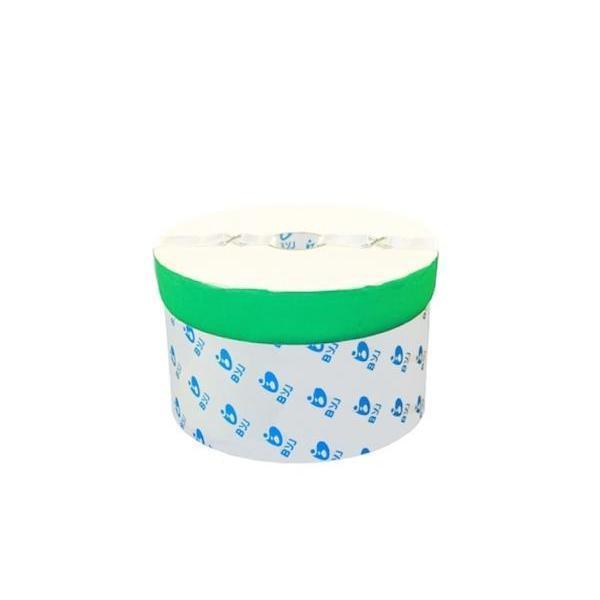
Precision Oil Filter Core G-100

Movable Precision Oil Filter Machine MP-...

Movable Precision Oil Filter Machine MP-...

Movable Precision Oil Filter Machine MP-...

Movable Precision Oil Filter Machine MP-...

Movable Precision Oil Filter Machine MP-...

